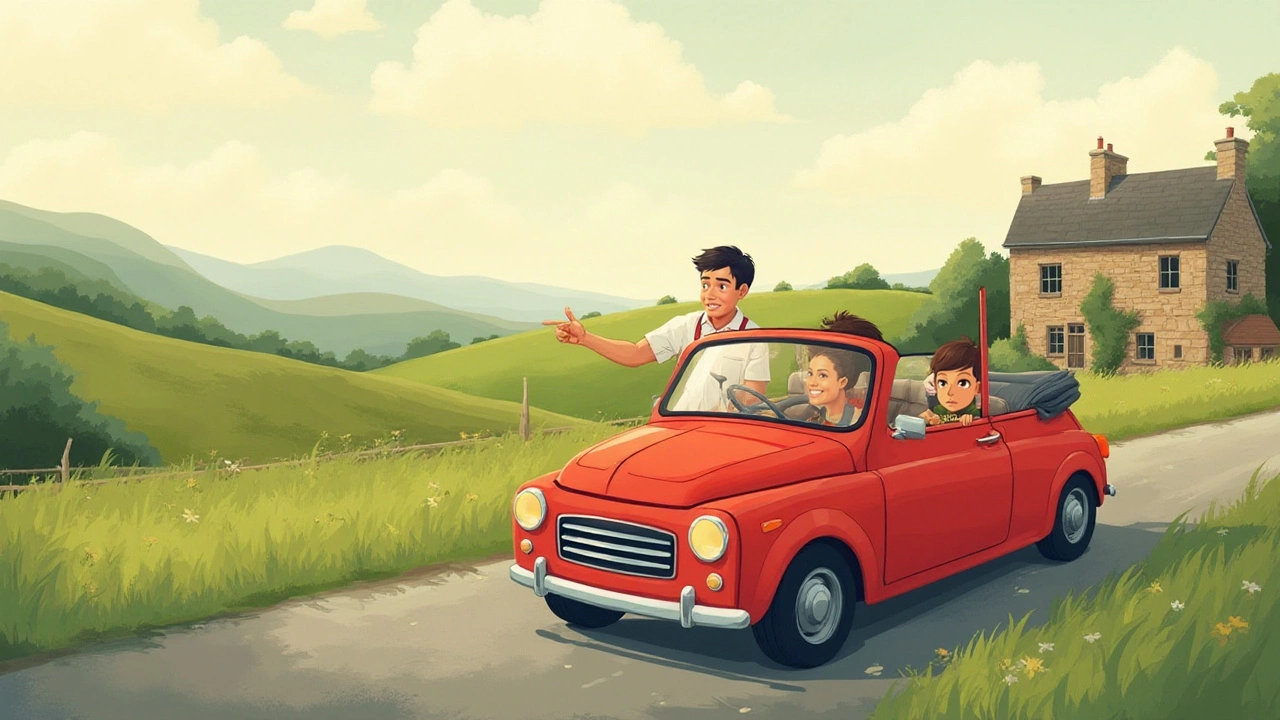Manual Car Driving: Practical Tips to Master the Gearshift
If you’ve ever watched a friend flip gears smoothly, you know it looks easy. The truth is, anyone can learn manual driving with a bit of guidance and practice. Below you’ll find straight‑forward advice that gets you moving confidently, whether you’re preparing for a test or just want to feel at home behind the wheel.
Start with the Basics: Clutch, Gear Lever, and Pedals
The first thing to get right is the relationship between the clutch pedal (left), the brake (middle), and the accelerator (right). When you press the clutch, you’re disconnecting the engine from the wheels – that’s the only time you can change gears. Always keep your left foot on the floor; you’ll only use it for the clutch.
Pick a flat spot, turn the engine on, and practice pressing the clutch all the way down. While it’s down, move the gear lever into first gear. Slowly lift the clutch until you feel the car want to move – that’s the “bite point.” Hold that spot, then gently add gas with your right foot. Once the car rolls forward, release the clutch fully and press the accelerator a bit more.
Shifting Up and Down Without Stalling
To shift up, press the clutch, move the lever to the next higher gear, and release the clutch smoothly while adding a little gas. The key is timing – too fast and the engine will bog, too slow and you’ll feel a jerky motion. Practice moving from first to second, then second to third on a quiet road.
Downshifting works the same way but in reverse. When you need more power (like climbing a hill), press the clutch, select a lower gear, and release the clutch while matching the engine speed. A quick tip: before you let the clutch go, give the accelerator a gentle tap to bring the revs up – this prevents the car from jerking.
If you ever stall, don’t panic. Just press the clutch, turn the key, and start again. Stalls are part of learning; each one teaches you where the bite point is.
Common Mistakes and How to Fix Them
Riding the clutch. Keeping the clutch partially engaged wears it out fast. Only use the clutch when you’re actually shifting.
Skipping gears. Jumping from first to third can stress the engine and make the car lurch. Move through each gear sequentially unless you’re an experienced driver.
Not matching revs when downshifting. This causes a harsh slowdown and can damage the gearbox. Practice the “rev‑blip” technique: give a quick gas press while the clutch is down before releasing it.
Preparing for the Manual Driving Test
Most test centers look for smooth clutch control, proper gear changes, and safe positioning. Before the day arrives, run through a full circuit of basic maneuvers: start‑stop, hill starts, three‑point turns, and parallel parking – all in a manual car.
Bring a checklist: clutch bite point, gear change timing, and observation habits. During the test, treat each move as a mini‑practice session. Focus on steady breathing, keep your eyes moving, and remember the clutch‑gas balance you practiced.
Finally, schedule a mock test with a qualified instructor. Real‑world feedback highlights blind spots you might miss on your own.
Mastering a manual car takes patience, but once you’ve got the rhythm, you’ll enjoy a level of control that automatics can’t match. Use these tips, practice regularly, and you’ll be shifting gears smoothly in no time.
- January 31 2025
- 0 Comments
- Rowan Cavendish
Mastering the Clutch: Find the Biting Point with Confidence
Learning to find the biting point is a vital skill for manual car drivers. This moment, when the engine and wheels start working together, can be elusive but mastering it makes driving smoother. Understanding the biting point requires a good feel for the car and patience to practice consistently. By breaking down the process, new drivers can build confidence and ensure they handle their vehicles safely. Discover the essentials of clutch control and easy tips to perfect this skill.
- Driving Lessons (43)
- Driving Test Tips (34)
- HGV Training (32)
- Driving Test Booking (28)
- Driving Licence Renewal (26)
- Driving Theory Test (22)
- Intensive Driving Course (19)
- Pass Plus Course (15)
- Driving Tips (15)
- Driver Licensing (14)
Categories
- February 2026 (6)
- January 2026 (13)
- December 2025 (15)
- November 2025 (13)
- October 2025 (21)
- September 2025 (5)
- August 2025 (8)
- July 2025 (30)
- June 2025 (30)
- May 2025 (30)
- April 2025 (31)
- March 2025 (30)
Archives
- driving lessons
- driving test
- driving tips
- driving test tips
- intensive driving course
- HGV training
- driving theory test
- learn to drive
- driver training
- pass driving test
- driving test booking
- HGV driving
- road safety
- Virginia driving test
- driving license renewal
- Virginia driver's license
- learner drivers
- safe driving
- driving license
- learning to drive

